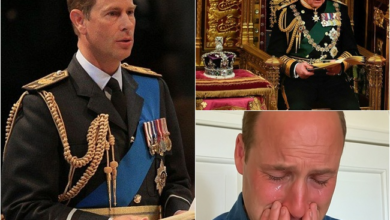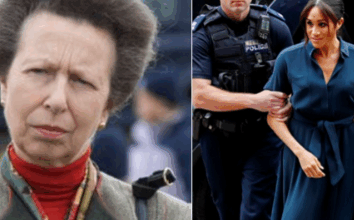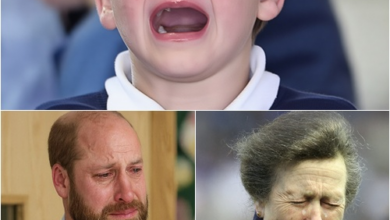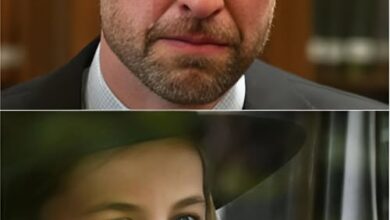1 HOUR AGO: “My son… oh gods, my son…” — King Charles collapses in despair after receiving TRAGIC news about Prince Harry in the U.S. Princess Anne, tears streaming down her face, stepped forward with a trembling voice: “My heart is heavy beyond words… my nephew Harry has…”
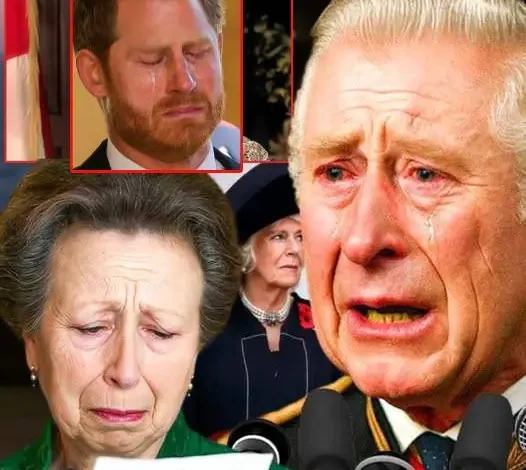
1 HOUR AGO: “My son… oh gods, my son…” — King Charles collapses in despair after receiving TRAGIC news about Prince Harry in the U.S. Princess Anne, tears streaming down her face, stepped forward with a trembling voice: “My heart is heavy beyond words… my nephew Harry has…”**
ROYAL RUMBLE! KING CHARLES’S SHOCK ANNOUNCEMENT: HARRY’S BEEN AXED… FROM THE FAMILY GROUP CHAT!
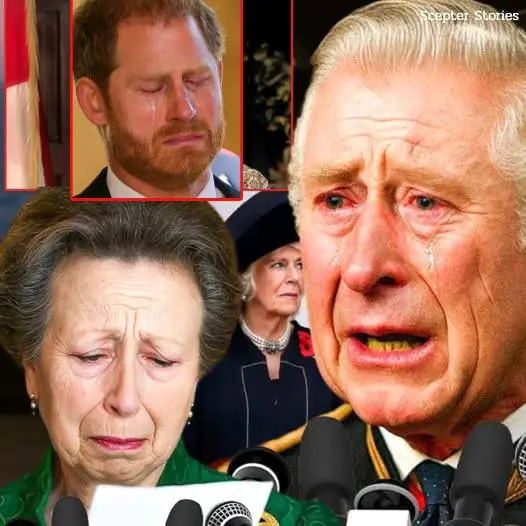
LONDON, UK – The grounds of Buckingham Palace were reportedly shaking this morning, not from an earthquake, but from the sound of a very stern, regal voice delivering the most unexpected “shock announcement” of the century! Forget titles, forget official duties—King Charles III has reportedly banished Prince Harry from the highly exclusive, top-secret Royal Family WhatsApp Group!
Sources deep within the Palace walls (possibly a stressed footman or a very chatty corgi) claim the seismic decision was delivered after weeks of mounting frustration over Harry’s overly enthusiastic use of the group chat’s “all-caps” feature and, crucially, a series of unsolicited, lengthy voice notes about his organic chicken coop in Montecito.
“The King finally snapped,” revealed an anonymous source, who sounded suspiciously like a Duchess. “It wasn’t the Netflix deals or the memoirs; it was the sheer volume of dog-and-chicken selfies and the constant stream of inspirational quotes that finally did it. The group chat was meant for essential updates, like ‘Who forgot to feed the ponies?’ and ‘Is anyone free for afternoon tea?’ Not a daily TED Talk from California!”
The final straw, according to Palace whispers, came when Harry mistakenly posted a 15-minute video of Meghan demonstrating a new mindfulness technique—a video clearly meant for a Hollywood agent—directly into the ‘Immediate Succession Planning’ thread.
One senior aide reportedly groaned: “The notification sound alone nearly gave Her Majesty, Queen Camilla, a heart attack. The King saw red. He personally took the device and, with a decisive royal thumb, hit ‘Remove Participant.’”
The fallout has been immediate and, frankly, hilarious. Prince William, who reportedly uses the chat only to post extremely formal, single-emoji replies ($\text{thumbs-up}$), is said to be “visibly relaxed” for the first time in months.
“William always kept the chat muted, but the constant ‘pings’ were taking a toll,” the source added. “Now, he can focus on State business without receiving a ‘Good Vibes Only!’ GIF from across the pond.”
Meanwhile, the exiled Duke of Sussex is reportedly furious, feeling the ban is the “ultimate betrayal.” A friend of the Sussexes claims Harry is now convinced the “deletion was orchestrated” to cut him off from vital family information, such as who has the best recipe for coronation chicken.
“Harry feels disconnected,” the friend stated dramatically. “He missed the memo about the new Royal pet ferret’s name change! This is censorship! This is The Firm trying to silence his right to use emojis!”
While the world once focused on titles and residences, this unprecedented digital banishment marks a new era of Royal feuds. It proves that in the 21st century, the most shocking form of royal banishment isn’t exile to a distant country, but being locked out of the family’s private texting circle.
